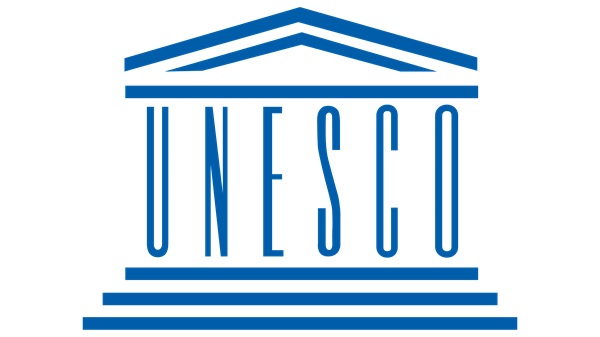
New Delhi, UNESCO - On Thursday 1 August 2024, the UNESCO World Heritage Committee announced that its 46th session held in New Delhi, India on Wednesday ended; 26 new cultural and natural properties have been inscribed on UNESCO's World Heritage List. The session concluded with Nauru, the Island state in the Pacific Ocean, ratifying the World Heritage Convention and becoming its 196th State Party.
The Committee inscribed 26 new properties, including making two major extensions to properties which are considered new inscriptions. The other inscriptions include 20 cultural properties, five natural properties and one mixed site. These properties thus benefit from the highest level of heritage protection in the world. Their managers will now have access to new opportunities for technical and financial assistance from UNESCO.
These inscriptions bring the total number of properties inscribed on UNESCO's World Heritage List to 1223, in 168 countries. The Committee also examined the state of conservation of 123 other properties already inscribed on the World Heritage List.
Several States Parties to the Convention - Colombia, Mauritius, the Lao People's Democratic Republic and the United Republic of Tanzania - have been allocated additional funds amounting to $235,520, to finance new conservation work on properties on their territory.
This new work will be added to the 22 International Assistance requests already approved since the beginning of the year, for a total amount of 695,201 dollars, in Africa, Asia-Pacific, the Arab States, Latin America and the Caribbean - all testimony to the work UNESCO and its partners are doing around the world to preserve of our common heritage.
Finally, the Committee announced that its next session to be held in the summer of 2025, will take place in Sofia, Bulgaria, under the chairmanship of Professor Nikolay Nenov.
The Protection of heritage at risk and the duty to collaborate with local communities
During this session, the Committee recognised the urgent need to strengthen the protection of several properties that are under potential or actual threat. To this end, the Committee inscribed the Monastery of Saint Hilarion/Tell Umm Amer in Palestine, simultaneously on both the World Heritage List and the List of World Heritage in Danger, and reiterated its calls for the protection of properties already inscribed on the List of World Heritage in Danger, particularly in Ukraine.
The World Heritage Committee also once again demonstrated its commitment to putting local people at the heart of the process of protecting World Heritage, inscribing sites such as Te Henua Enata – The Marquises Islands of France, the Via Appia. Regina Viarum in Italy, and the Royal Court of Tiébélé in Burkina Faso.
The examination of the state of conservation of many properties already inscribed also served to remind the States Parties of their duty to guarantee full respect for human rights, and ensuring local and indigenous people are placed at the heart of all management and conservation strategies.
Continuing to promote African heritage
In keeping with the UNESCO Director-General’s policy of prioritising African heritage, five new sites on the continent were inscribed on the World Heritage List: the Nelson Mandela memorial sites and the Pleistocene occupation sites in South Africa, the Royal Court of Tiébélé in Burkina Faso, the archaeological and palaeontological sites of Ethiopia’s High Plateaux region, and the historic town and archaeological site of Gedi in Kenya.
This session of the Committee also saw the removal of the Niokolo Koba National Park in Senegal from the List of World Heritage in Danger, thanks to the joint efforts to reduce threats to the site, made by the Senegalese authorities in collaboration with local communities, and with the support of UNESCO.
Kenya announced its desire to host an international conference in Nairobi, in May 2025, to enable an in-depth reflection on the concept of authenticity in African heritage, and to increase African sites’ representation on the World Heritage List.
Finally, India, which successfully hosted this session of the Committee, announced a contribution of $1 million to UNESCO's World Heritage Centre to support the safeguarding of World Heritage in Africa and in Small Island Developing States in Asia, through training programmes, technical assistance and conservation.
The World Heritage Convention becomes more universal
The Committee concluded with the announcement of a new ratification of the UNESCO World Heritage Convention, with Nauru becoming its 196th State Party. Adopted in 1972, the convention is now one of the most ratified standard-setting instruments in the world.
The Pacific State joins an international community committed to protecting humanity's cultural and natural heritage for future generations. This ratification is also a reminder of the importance of stepping up global efforts to protect the heritage of small island developing states, which are among the first to suffer the impacts of climate change.









